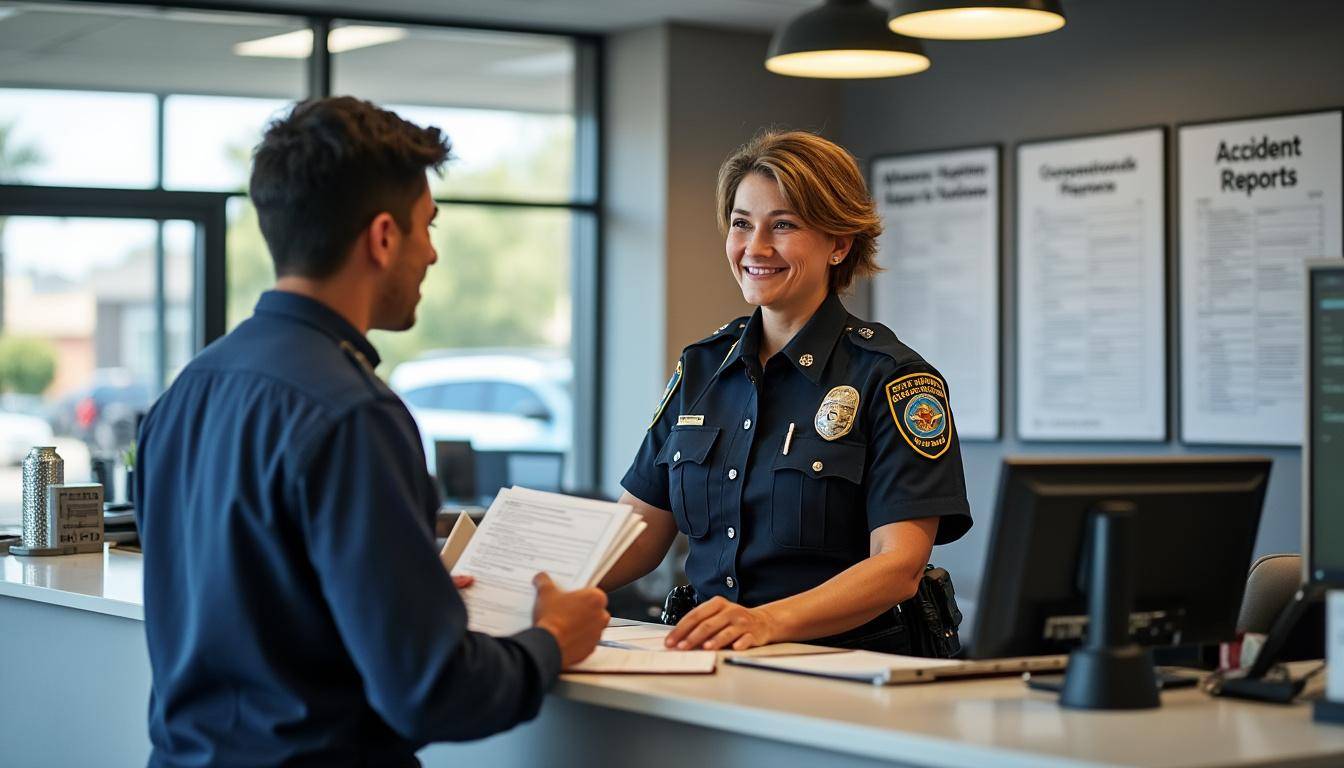Obtaining a police report after a car accident is a crucial step that can significantly impact your legal rights and the success of any insurance claim or lawsuit that may follow. Whether the crash was minor or severe, a detailed police report documents the facts and statements from all parties involved, providing an essential record of the incident. Navigating this process efficiently ensures you can protect yourself from potential disputes or liability as you seek compensation.
Understanding the Importance of a Car Accident Police Report
A car accident police report is an official document created by responding law enforcement officers at the scene. It encompasses critical details such as the identities of involved parties, witness statements, the circumstances surrounding the accident, and any citations or fault determinations made by the officers. Insurance companies and attorneys heavily rely on this report when assessing claims and establishing fault.
- Contains factual information: date, time, weather, road conditions
- Includes statements from drivers, passengers, and witnesses
- Provides a diagram or sketch of the accident and collision points
- Records the officer’s opinion on fault and citations issued
For anyone involved in an accident, securing this report—be it through AccidentReports.com or local police departments—is a vital protective measure. It helps clarify events, supports your legal stance, and can accelerate settlement negotiations.
How to Obtain Your Police Report After a Car Crash
If you haven’t received a police report immediately after an accident, there are several efficient methods to get one:
- Request from the local police department: Contact the traffic or records division with your accident details or report number. Many agencies charge a nominal fee around $15.
- Online portals: Use services like PoliceReportsUS, CrashReports.com, or ReportNow to order your report conveniently online.
- Insurance company assistance: Often insurers obtain police reports for claims; request a copy from your adjuster without extra charges.
- Use mobile apps: Tools such as the File a Police Report APP streamline report requests directly from your phone.
- Third-party report databases: Platforms like MyAccident.org aggregate accident records for public access.
Bear in mind, police reports typically become available a few days to weeks after the incident once officers complete their investigations. Patience is essential, but early requests can help you meet insurance and legal deadlines efficiently.
What Information Does a Police Report Include?
A police report compiles objective facts and subjective opinions related to the collision:
- Accident details: Date, time, exact location, weather, and road conditions
- People involved: Contact information, insurance details, and witness identifications
- Statements: Recorded accounts from drivers, passengers, and eyewitnesses
- Evidence: Diagrams of the crash scene illustrating vehicle positions and points of impact
- Citations: Tickets or violations issued at the scene
- Officer’s conclusions: Opinions on cause and fault allocation
While the officer’s fault determination is influential, it is not absolute; insurance adjusters will independently evaluate liability. Legal experts can advise on how the report fits into your broader case strategy.
Using the Police Report in Insurance Claims and Legal Cases
Insurance companies heavily utilize police reports when processing claims. The documentation supplies an impartial record, essential for resolving disputes or negotiating fair compensation.
- Support claim validity: Helps insurers verify accident specifics and context
- Facilitate fault determination: Officer opinions often influence initial liability assessments
- Evidence in disputes: May be used to challenge or confirm insurance rejection decisions
- As legal proof: Select jurisdictions admit police reports as evidence in court proceedings, either fully or partially
If you encounter claim denial or complexities, consulting a knowledgeable accident attorney is critical. An expert can leverage your police report alongside other evidence to build a robust case, as detailed in resources like navigating car accident lawsuits.
When to File a Police Report After a Car Accident
Filing a police report immediately at the scene is advisable, but if that wasn’t possible, many states mandate reporting within a specific time frame—usually 24 hours to 10 days—depending on damage severity or injuries sustained.
- Ensure you contact 911 or local law enforcement promptly after an accident
- Record names and badge numbers of responding officers
- Obtain the police or report number for your records and insurance
- File dependent on state laws; failure can cause license suspensions or fines
Even if injuries seem minor or absent, reporting is essential for accurate liability assessment and may aid in future claims. Some states, like Colorado, require reports on minor incidents, while others have thresholds based on damage value.
Next Steps After Receiving Your Police Report
Once you have obtained your report, you should:
- Review the facts carefully for accuracy
- Use the report when filing or contesting an insurance claim
- Consult a personal injury attorney for guidance on legal representation if you intend to pursue damages
- Preserve all evidence and contact information detailed in the report
- Understand your state’s statutes of limitations and reporting requirements
Preparing your legal strategy promptly with the police report as a foundation improves your position in negotiations or court actions.
Frequently Asked Questions About Obtaining a Police Report for an Accident
- Do I need a police report if no one was injured?
Yes. A police report helps establish fault and supports insurance claims even in property damage-only incidents. - How long after an accident can I request the police report?
Reports may take days or weeks to be finalized; however, request it as soon as possible to meet insurance deadlines. - Can a police report be used in court?
It depends on jurisdiction. Some courts allow it wholly or in part, while others treat it as hearsay requiring additional evidence. - What if the police do not come to the accident scene?
You must file a report yourself with the relevant agency or use online services like AccidentReports.com. - How do I avoid admitting fault during police questioning?
Provide factual answers without speculating or apologizing—fault determination is the officer’s responsibility.
